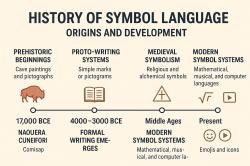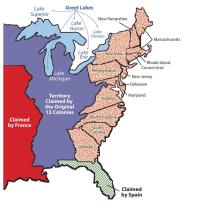What was the earliest settlement in North America?
The earliest known settlements in North America were established by indigenous peoples who migrated to the continent thousands of years ago. These settlements predate the arrival of European explorers and settlers. While the exact dates and details of these early settlements can vary, some of the oldest known ones include:
Clovis Culture (c. 13,000 to 12,700 years ago): The Clovis culture is associated with one of the earliest known groups of indigenous people in North America. They are known for their distinctive stone tools, including spear points, and are believed to have lived in what is now the southwestern United States.
Meadowcroft Rockshelter (c. 16,000 to 19,000 years ago): Located in Pennsylvania, the Meadowcroft Rockshelter is one of the most well-documented archaeological sites in North America. It provides evidence of human habitation dating back thousands of years.
Monte Verde (c. 14,500 years ago): In southern Chile, Monte Verde is considered one of the earliest known human settlements in the Americas. Archaeological evidence at this site suggests human occupation around 14,500 years ago.
Gault Site (c. 16,000 to 20,000 years ago): Situated in Texas, the Gault Site has provided evidence of human occupation dating back at least 16,000 years. It is significant in understanding the early history of North American settlement.
Paisley Caves (c. 14,000 to 15,000 years ago): Located in Oregon, the Paisley Caves contain archaeological evidence that suggests human occupation in the region around 14,000 to 15,000 years ago.
It's important to note that these dates are approximate, and ongoing archaeological research may lead to refinements in our understanding of the timeline of early human settlement in North America. These early settlements were established by diverse groups of indigenous peoples who thrived in different regions of the continent long before the arrival of European colonists.
Earliest Settlement in North America: A Historical Overview
The earliest settlement in North America is a matter of debate among historians. There is evidence that humans have been in North America for at least 15,000 years, but it is unclear when and where the first permanent settlements were established.
One of the most likely candidates for the earliest settlement in North America is the Clovis site in New Mexico. The Clovis site is a large archaeological site that contains evidence of human habitation dating back to around 13,000 years ago. The people who lived at the Clovis site were hunter-gatherers who used Clovis points, a type of stone tool, to hunt mammoths and other large animals.
Another possible candidate for the earliest settlement in North America is the Monte Verde site in Chile. The Monte Verde site is a well-preserved archaeological site that contains evidence of human habitation dating back to around 14,500 years ago. The people who lived at the Monte Verde site were hunter-gatherers who used a variety of tools, including stone tools, bone tools, and wood tools.
Tracing the Origins of the First North American Settlements
The origins of the first North American settlements are still being studied by historians and archaeologists. It is likely that the first people to arrive in North America came from Asia over a land bridge that existed between Siberia and Alaska during the last ice age.
Once the first people arrived in North America, they began to spread out across the continent. They followed the herds of large animals, such as mammoths and bison, and they established settlements in areas that had abundant food and water resources.
Pioneering Communities in Early North American History
The first North American settlements were small and scattered. The people who lived in these settlements were hunter-gatherers who relied on the land for their food and resources. They lived in simple shelters, such as caves and teepees, and they made their own tools and clothing.
Over time, the people of North America began to develop more complex societies. They started to farm and domesticate animals, and they built more permanent settlements. They also developed new technologies, such as pottery and weaving.
Some of the most notable pioneering communities in early North American history include:
- The Anasazi: The Anasazi were a Puebloan people who lived in the southwestern United States from around 1 AD to 1300 AD. They built cliff dwellings and pueblos, and they farmed corn, beans, and squash.
- The Mississippians: The Mississippians were a mound-building people who lived in the southeastern United States from around 800 AD to 1500 AD. They built large earthen mounds, and they farmed corn, beans, and squash.
- The Iroquois Confederacy: The Iroquois Confederacy was a confederation of five Native American tribes that lived in what is now New York State from around 1500 AD to the 18th century. They built longhouses, and they farmed corn, beans, and squash.
These are just a few examples of the many pioneering communities that existed in North America before the arrival of Europeans. The early settlers of North America were resourceful and resilient people who built thriving communities in a variety of environments.
The arrival of Europeans in North America had a profound impact on the native peoples who had lived there for thousands of years. The Europeans brought new diseases, new technologies, and new ways of life. The native peoples of North America were forced to adapt to these changes, and their cultures were forever altered.
Despite the challenges they faced, the native peoples of North America have survived and thrived. They continue to play an important role in the culture and history of North America.












